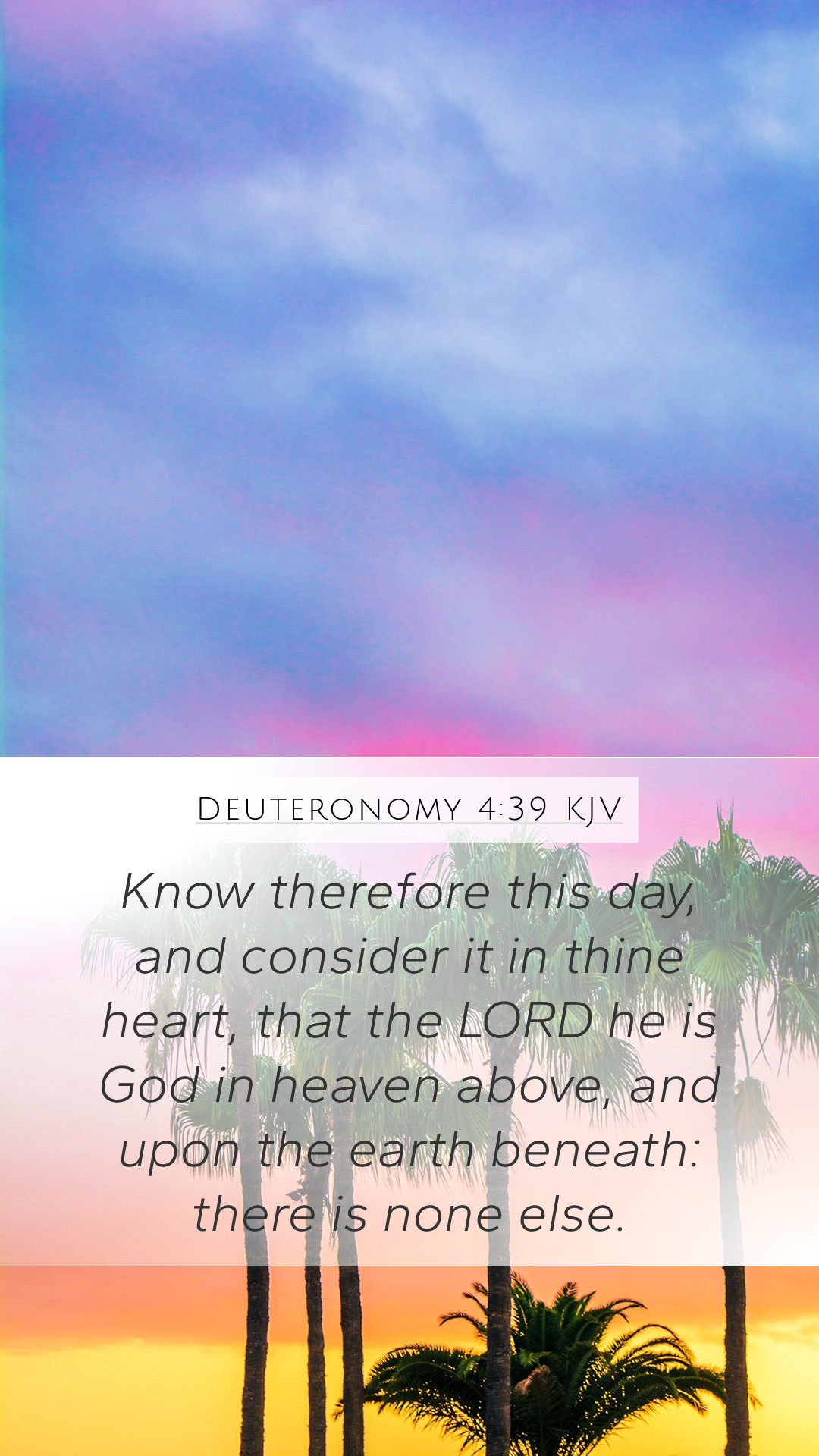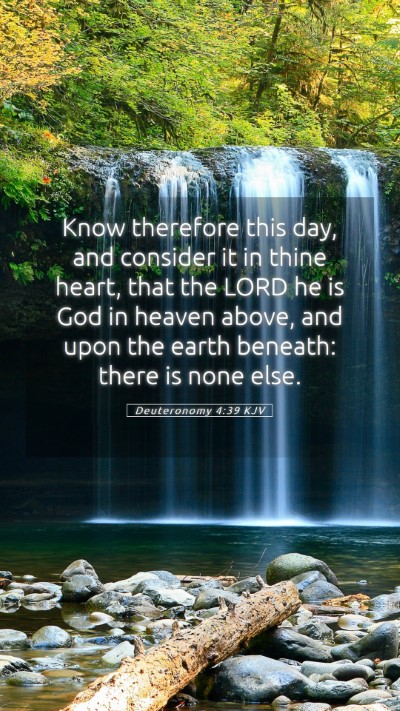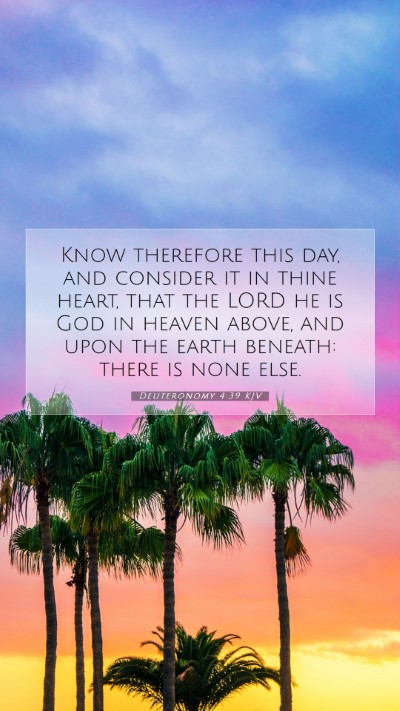Understanding Deuteronomy 4:39
Deuteronomy 4:39 states: "Know therefore this day, and consider it in thine heart, that the LORD he is God in heaven above, and upon the earth beneath: there is none else." This verse emphasizes the sovereignty of God as the only true deity, both in the heavens and on earth. Here, we’ll explore its deeper meaning through the lens of several public domain commentaries, providing Bible verse meanings, interpretations, and explanations supported by Scripture analysis.
Commentary Insights
The insights from esteemed biblical commentators Matthew Henry, Albert Barnes, and Adam Clarke provide a rich understanding of this verse.
- Matthew Henry: Henry reflects on the importance of recognizing God’s supremacy. He emphasizes that this acknowledgment should penetrate the heart and inform the believer's life. He views this as a call to recognize the singularity of God, contrasted against the backdrop of pagan beliefs. The heart's consideration implies a personal and profound understanding of God as the ultimate authority.
- Albert Barnes: Barnes elaborates on the implications of God's existence as the only deity. He asserts that true worship must stem from an understanding of God’s nature and power. Barnes insists that acknowledging the Lord involves a commitment to follow His statutes, promoting a lifestyle aligned with divine principles. This underscores a significant aspect of Bible verse understanding, which is the application of knowledge into daily living.
- Adam Clarke: Clarke notes that this declaration serves as both a reminder and an admonition. He suggests that the Israelites must not forget the revelation of God’s might and presence, neither should they be swayed by surrounding nations. Clarke adds that this verse acts as a foundation for faith, reinforcing the necessity of cultivating a steadfast belief in God’s omnipotence and omnipresence.
Key Themes
The exploration of Deuteronomy 4:39 leads to several key themes essential for Bible study insights and understanding Scripture:
- The Sovereignty of God: This verse affirms that God reigns supreme over all creation. It calls believers to acknowledge His authority in all aspects of life.
- Exclusivity of Worship: The mention of "there is none else" highlights the necessity of worshiping God alone, guiding believers away from idolatry and reinforcing the importance of spiritual fidelity.
- Heartfelt Consideration: The instruction to consider in one's heart stresses the importance of internalizing the truth about God, promoting a relationship that goes beyond mere acknowledgment.
Application of the Verse
Applying Deuteronomy 4:39 to daily life involves a conscious effort to recognize God's authority and presence continuously. Believers are encouraged to:
- Engage in daily reflection on the nature of God.
- Create a life of worship that honors God as the only deity.
- Foster a relationship with God through prayer and meditation on Scripture.
Cross References
Several cross-references enhance understanding of Deuteronomy 4:39, providing additional context and insight:
- Isaiah 45:5: "I am the LORD, and there is none else, there is no God beside me." This verse parallels the message of sovereignty and exclusivity in worship.
- 1 Kings 8:60: "That all the people of the earth may know that the LORD is God, and that there is none else." This verse emphasizes the universal recognition of God’s uniqueness.
- Romans 10:9: "That if you confess with your mouth the Lord Jesus and believe in your heart that God raised Him from the dead, you will be saved." This connects the New Testament promise of salvation to the acknowledgment of God’s sovereignty.
Conclusion
In conclusion, Deuteronomy 4:39 stands as a profound declaration of God's singularity and supremacy. Through the insights gained from esteemed commentators, this verse invites us to a deeper understanding of divine authority and worship. For those engaged in Bible study groups or personal exploration, this verse serves as a critical piece in the puzzle of God's true nature and the faith He calls us to embody.


